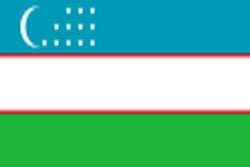Joint research
Topic
- A Value Chain Analysis of the Uzbekistan Cherry Industry - Case Study in Samarkand Province
Partner Agency
- Scientific Resarch Institute of Horticulture, Viticulture and Winemaking named after Academician M. Mirzaev
1st Field Survey
- From May 14 to 20, 2017, the KAPEX Joint Research team visited Tashkent and Samarkand to conduct the 1st field survey. They diagnosed the producing, marketing and quarantine systems of the cherry industry in the Samarkand region through interviews of stakeholders in the value chain. To analyze the current situation and the problem regarding the plant quarantine, the team had interviews with related institutions, including KOPIA, the Scientific Research Institute of Horticulture in Samarkand, the State Standard Agency, and the Main State Inspection on Plants Quarantine.
2nd Field Survey
- On September 11 to 14, 2017, the team visited Samarkand to interview for analysis of the market situation. It visited the large-scale fruit exporters, processors, and distributers, to diagnose the bottlenecks in cherry exporting in Uzbekistan. They also interviewed smallholder cherry farmers to analyze their willingness to participate in agricultural cooperatives for competitiveness in exporting.
Result-sharing Workshop in Uzbekistan
- On September 8, 2017, KREI held the result-sharing workshop in Tashkent to share experience on Korea's experience on value chain and discuss the action plans on establishing cherry value chain in Samarkand. They emphasized the importance of expanding the scale of producing and recommended the investment in the form of joint venture on post-harvest management facility and related infrastructure.
Major Findings
- The research found there were more than 30 cherry varieties, produced in Samarkand. Major cherry varieties were Bakhor, Napoleon ad Burlat. To enhance competitiveness in export, Samarkand should consider customers' taste preferences. Also, the post-harvest loss is the critical problem for local cherry producers. To address this issue, the province should help to establish post-harvest infrastructures. It has to establish cooperatives or farmers’ groups, composed of cherry producers and processors, for competitiveness building. To achieve quarantine requirements as high as Korea and EU, it has to establish laboratories and facilities for quarantine research and analysis. It should focus on capacity building.

